Politics
Trump to ask Supreme Court to save tariffs but faces tough legal questions
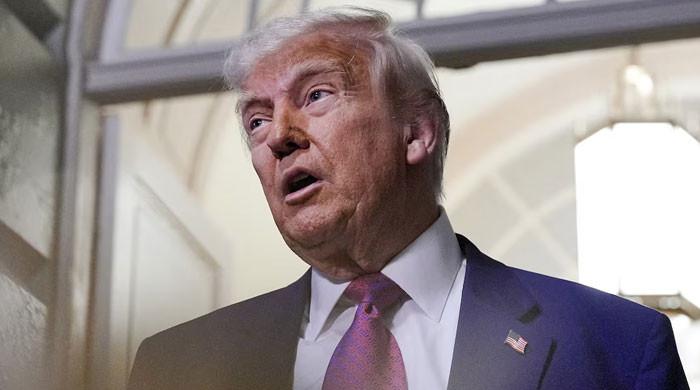
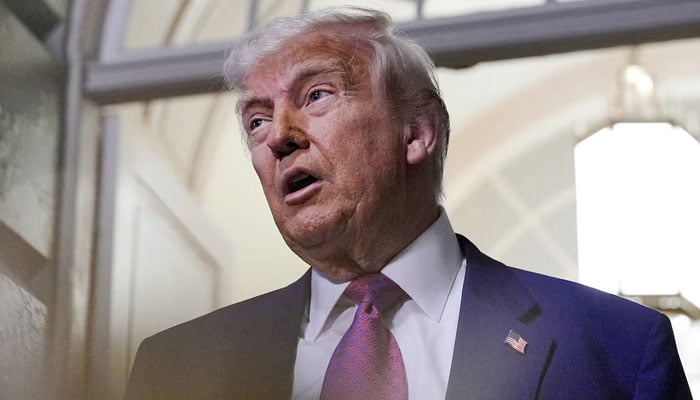
WASHINGTON: US President Donald Trump is set to imminently ask the conservative-majority Supreme Court to validate his broad emergency tariffs after two setbacks at lower courts, but will face tough legal questions as his administration presses ahead with backup plans.
Legal and trade experts said that the Supreme Court’s 6-3 majority of Republican-appointed justices may slightly improve Trump’s odds of keeping in place his “reciprocal” and fentanyl-related tariffs after a federal appeals court ruled 7-4 last week that they are illegal.
Trump said on Tuesday that his administration would seek as early as Wednesday an expedited ruling by the Supreme Court “because we need an early decision.” He warned of “devastation” if the duties he imposed under the International Emergency Economic Powers Act (IEEPA) are struck down.
The US Court of Appeals for the Federal Circuit agreed on Friday with a lower court in finding that IEEPA does not grant the president unlimited authority to impose tariffs and the 1977 statute does not mention the term among regulatory powers it allows in a national emergency.
The ruling marked a rare setback for Trump, who has sought to re-order the global economy in the US’s favor with tariffs by declaring a national emergency over decades of trade deficits.
Top administration officials, including Treasury Secretary Scott Bessent, say they expect the Supreme Court to uphold the use of IEEPA to justify tariffs, but will turn to other legal means if needed. The tariffs will remain in place at least through October 14 to allow time for the government to file the Supreme Court appeal.
Major questions doctrines
Trump’s Department of Justice has argued that the law allows tariffs under emergency provisions that authorise a president to “regulate” imports or block them completely.
How far that unwritten regulatory authority goes is the biggest challenge for Trump’s appeal, and two losses have led some legal scholars to predict that the Court of International Trade’s original ruling against the tariffs will ultimately be upheld.
“I have a really hard time believing that the Supreme Court is going to read IEEPA in such a broad way that the President can write and rewrite the tariff code in any way he wishes, on any particular day for any particular reason,” said John Veroneau, a former Republican-appointed deputy US Trade Representative and partner at Covington and Burling.
Veroneau said that the case will test the Supreme Court’s “major questions doctrine”, which holds that if Congress wants to give an executive agency the power to make decisions of “vast economic and political significance,” it must do so explicitly.
The doctrine was used against former President Joe Biden in 2023 when the Supreme Court ruled 6-3 that he overstepped his authority by moving to cancel up to $400 billion in student loans — an order that the court said had a “staggering” scope of impact.
A key question is whether the court will apply the same standard to Trump’s tariffs. Comparing these to the impact of the student loan cancellations, the appeals court said in its decision that “the overall economic impact of the tariffs imposed under the government’s reading of IEEPA is even larger still.”
Split decision
Balancing this will be the Supreme Court’s traditional deference to the president on matters of foreign affairs and national emergencies, an issue where the 6-3 conservative majority may come into play. Six of the seven appeals court judges voting against the IEEPA tariffs were appointed by Democratic presidents, but there were crossover votes among both parties’ appointees.
“Given the Federal Circuit’s majority opinion and the dissent were quite robust, the Supreme Court will likely address the meat of whether IEEPA allows the administration to impose tariffs,” said Ryan Majerus, a former senior Commerce Department official and a partner with King and Spalding.
“That decision, either way, will have significant implications for where the administration’s trade policy goes next,” Majerus said.
The Trump administration has already been expanding tariff investigations under other legal authorities, including the national security-focused Section 232 of the Trade Expansion Act of 1962 under which a probe into furniture imports has been launched.
Bessent told Reuters that another option could be a provision of the Smoot-Hawley Tariff Act of 1930, which allows the president to impose tariffs of up to 50% on imports from countries that are found to discriminate against US commerce. The statute, Section 338, has been largely dormant for decades but would allow for quick imposition of tariffs.
If the IEEPA tariffs ultimately are struck down, trade lawyers said that a major headache for the Trump administration will be refunds of paid duties. Majerus said importers can lodge protests at the Customs and Border Protection agency to obtain refunds, but these efforts may end up in litigation.
CBP reported that as of August 25, collections of Trump’s tariffs imposed under IEEPA totaled $65.8 billion.
A source familiar with the Trump administration’s thinking said that lawyers sifted through the ruling over the Labor Day holiday weekend to gauge possible outcomes and expected a quick appeal to the Supreme Court, with a final decision likely in early 2026.
Politics
Zelensky reveals US-Ukraine plan to end Russian war, key questions remain
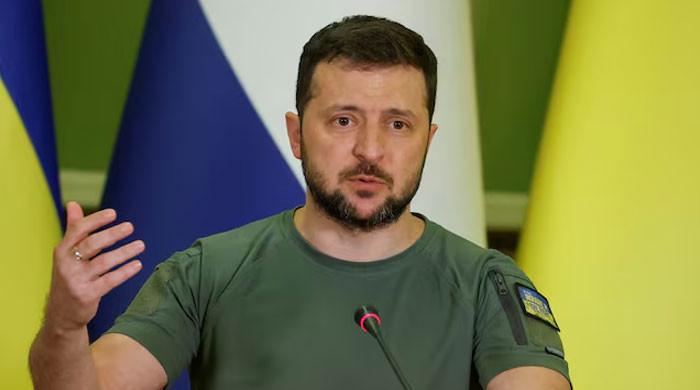

- Moscow reviewing 20-point plan but may not accept territorial terms.
- Plan allows partial troop withdrawals, establishment of demilitarised zones.
- Zelensky admits there are points in plan he does not fully agree with.
KYIV: Ukraine won some concessions in the latest version of a US-led draft plan to end the Russian invasion, revealed by President Volodymyr Zelensky, though key questions remain over territory and whether Moscow could accept the new terms.
The 20-point plan, agreed on by US and Ukrainian negotiators, was being reviewed by Moscow, but the Kremlin is unlikely to abandon its hardline territorial demands for full Ukrainian withdrawal from the east.
Zelensky conceded there are some points in the document that he does not like, but Kyiv has succeeded in removing immediate requirements for Ukraine to withdraw from the Donetsk region or that land seized by Moscow’s army would be recognised as Russian.
Nevertheless, the Ukrainian leader still indicated the proposal would pave the way for Kyiv to pull some troops back, including from the 20 percent of the Donetsk region that it controls, where demilitarised zones would be established.
It also got rid of demands that Kyiv must legally renounce its bid for Nato membership.
Zelensky presented the plan during a two-hour briefing with journalists, reading from a highlighted and annotated version.
“In the Donetsk, Lugansk, Zaporizhzhia, and Kherson regions, the line of troop deployment as of the date of this agreement is de facto recognised as the line of contact,” Zelensky said of the latest version.
“A working group will convene to determine the redeployment of forces necessary to end the conflict, as well as to define the parameters of potential future special economic zones,” he added.
This appears to suggest the plan opens the way for, but delays, options that Ukraine was previously reluctant to consider — a withdrawal of troops and the creation of demilitarised zones.
“We are in a situation where the Russians want us to withdraw from the Donetsk region, while the Americans are trying to find a way,” Zelensky said.
“They are looking for a demilitarised zone or a free economic zone, meaning a format that could satisfy both sides,” he continued.
Nato, land, nuclear plant
US President Trump is trying to broker an to end the four-year war, triggered by Russia’s 2022 invasion.
Tens of thousands have been killed, eastern Ukraine decimated, and millions forced to flee their homes.
Russian troops are advancing on the front and hammering cities and Ukraine’s energy grid with nightly missile and drone barrages. The defence ministry on Wednesday said it had captured another Ukrainian settlement in the southern Zaporizhzhia region.
Moscow in 2022 claimed to have annexed four Ukrainian regions — Donetsk, Kherson, Lugansk, and Zaporizhzhia — in addition to the Crimean peninsula, which it seized in 2014.
In Moscow, President Vladimir Putin has shown no willingness to compromise, doubling down on his hardline demands for a sweeping Ukrainian withdrawal and a string of political concessions that Kyiv and its European backers have previously cast as capitulation.
Any plan that involves Ukraine pulling back its troops would need to pass a referendum in Ukraine, Zelensky said.
“A free economic zone. If we are discussing this, then we need to go to a referendum,” Zelensky said, referring to plans to designate areas Ukraine pulls out from as a demilitarised free trade zone.
On Nato, Zelensky said: “It is the choice of Nato members whether to have Ukraine or not. Our choice has been made. We moved away from the proposed changes to the Constitution of Ukraine that would have prohibited Ukraine from joining Nato.”
Nevertheless, the prospects of Ukraine being admitted to the bloc appear slim-to-none, as it has been ruled out by Washington.
Moscow has repeatedly said Nato membership for Ukraine is unacceptable, presenting it as one of the reasons it invaded in the first place.
The plan sees joint US-Ukrainian-Russian management of the Zaporizhzhia nuclear power plant, occupied by Russian troops. Zelensky said he does not want any Russian oversight of the facility.
He also said Ukraine would hold presidential elections only after an agreement is signed — something both Putin and Trump have been pushing for.
Kremlin spokesman Dmitry Peskov told reporters Moscow was “formulating its position” and declined to comment on the specifics of the latest plan.
Russian officials have repeatedly criticised European and Ukrainian efforts to amend an original US plan that enshrined many of its demands.
Direct talks between Russian and Ukrainian negotiators earlier this year in Istanbul failed to break the deadlock and despite the flurry of diplomacy, the positions of the two countries appear to still be far apart.
Politics
Bangladesh political heavyweight Tarique Rahman to end exile


- Rahman serves as acting chairman of BNP.
- Political scion expected to take reins from Khaleda Zia.
- Rahman acquitted of most serious charge.
The heir to Bangladesh’s longtime ruling family and a leader of its most powerful political party, Tarique Rahman is set to return home after 17 years in exile and ahead of key elections.
Rahman, 60, an aspiring prime minister who has lived in London since he fled Bangladesh in 2008 over what he called a politically motivated persecution, is due to arrive in Dhaka on Thursday.
Acting chairman of the Bangladesh Nationalist Party (BNP), he is expected to take the reins from his ailing mother, 80-year-old former prime minister Khaleda Zia.
Despite years of ill health and imprisonment, Zia vowed in November to campaign in the February 12, 2026 elections.
But she was hospitalised soon after that pledge, and she has been in intensive care ever since.
The elections will be the first since a mass uprising last year ended the 15-year hardline rule of Sheikh Hasina, who was at odds with the BNP.
Since Hasina’s fall from power, Rahman has been acquitted of the most serious charge against him: a life sentence handed down in absentia for a 2004 grenade attack on a Hasina rally. He had denied the charges.
BNP secretary general Mirza Fakhrul Islam Alamgir has promised Rahman will “arrive among us on the soil of Dhaka” on December 25, which he said will be a “fantastic day.”
Rahman, often pictured beside his mother on BNP banners, has long been groomed for leadership.
In June, he met in London with Muhammad Yunus, the 85-year-old Nobel Peace Prize winner leading the interim government until the February elections.
Violent politics
Rahman, known in Bangladesh as Tarique Zia, carries a political name that has defined his life.
Born in 1967 when the country was still East Pakistan, he was briefly detained as a child during the 1971 war. The BNP hails him as “one of the youngest prisoners of war”.
His father, Ziaur Rahman, was an army commander.
Ziaur Rahman gained influence months after a 1975 coup in which Sheikh Hasina’s father — founding leader Sheikh Mujibur Rahman was murdered.
That fuelled lifelong tensions between the Zia and Hasina families, dubbed the “Battle of the Begums” — “begum” meaning a powerful woman.
Ziaur Rahman was assassinated when his son was 15.
The younger Rahman grew up in his mother’s political orbit, as Zia went on to become the country’s first female prime minister, alternating her terms in power with Hasina.
Rahman briefly studied international relations at Dhaka University before entering politics at 23, joining the BNP in its fight against military ruler Hussain Muhammad Ershad, according to his party.
‘Unnerves many’
Still, Rahmans’ career has been dogged by allegations of nepotism and mismanagement.
A 2006 US embassy cable described him as the BNP’s “heir apparent” who “inspires few but unnerves many”.
Other cables labelled him a “symbol of kleptocratic government and violent politics” and accused him of being “phenomenally corrupt” — claims he rejected as politically motivated.
Rahman was arrested on corruption charges in 2007 and claimed he was tortured in custody.
Reports suggested his release was conditional on leaving politics. Freed later that year, he flew to London in 2008 for medical treatment and never returned.
After Hasina swept to power in 2008, her government jailed tens of thousands of BNP members.
In 2018, Rahman was again sentenced in absentia to life imprisonment for allegedly orchestrating the 2004 attack on Hasina’s rally — a case the BNP called a bid to eliminate the Zia dynasty from politics.
In Britain, he kept a low profile alongside his wife, a cardiologist, and their daughter.
Since Hasina’s ouster, Rahman emerged as an outspoken figure on social media and a rallying point for BNP supporters.
Politics
Libyan army’s chief dies in plane crash near Ankara
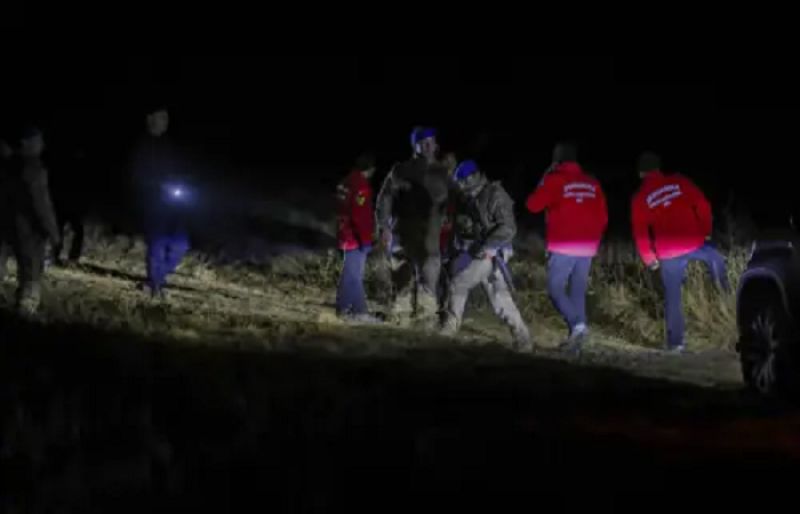

The Libyan army’s chief of staff, Mohammed Ali Ahmed Al-Haddad, died in a plane crash after leaving Turkiye capital Ankara, the prime minister of Libya’s internationally recognised government said, adding that four others were on the jet as well.
“This followed a tragic and painful incident while they were returning from an official trip from the Turkish city of Ankara.
This grave loss is a great loss for the nation, for the military institution, and for all the people,” Libyan Prime Minister Abdulhamid Dbeibah said in a statement.
He said the commander of Libya’s ground forces, the director of its military manufacturing authority, an adviser to the chief of staff, and a photographer from the chief of staff’s office were also on the aircraft.
Platform X that the plane had taken off from Ankara’s Esenboga Airport at 1710 GMT en route to Tripoli, and that radio contact was lost at 1752 GMT.
He said authorities found the plane’s wreckage near the Kesikkavak village in Ankara’s Haymana district.
He added that the Dassault Falcon 50-type jet had made a request for an emergency landing while over Haymana, but that no contact was established.
The cause of the crash was not immediately clear.
Turkiye’s defence ministry had announced Haddad’s visit earlier, saying he had met with Turkish Defence Minister Yasar Guler and Turkish counterpart Selcuk Bayraktaroglu, along with other Turkish military commanders.
The crash occurred a day after Turkiye’s parliament passed a decision to extend the mandate of Turkish soldiers’ deployment in Libya by two more years.
Nato member Turkiye has militarily and politically supported Libya’s Tripoli-based, internationally recognised government.
In 2020, it sent military personnel there to train and support its government and later reached a maritime demarcation accord, which has been disputed by Egypt and Greece.
In 2022, Ankara and Tripoli also signed a preliminary accord on energy exploration, which Egypt and Greece also oppose.
However, Turkiye has recently switched course under its “One Libya” policy, ramping up contacts with Libya’s eastern faction as well.
-

 Fashion7 days ago
Fashion7 days agoIndonesia’s thrift surge fuels waste and textile industry woes
-

 Tech7 days ago
Tech7 days agoT-Mobile Business Internet and Phone Deals
-

 Business7 days ago
Business7 days agoBP names new boss as current CEO leaves after less than two years
-

 Sports7 days ago
Sports7 days agoPKF summons meeting after Pakistani player represents India in kabaddi tournament
-
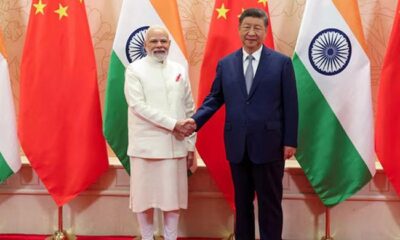
 Entertainment7 days ago
Entertainment7 days agoIndia streamlines visa rules in boost for Chinese professionals
-

 Sports7 days ago
Sports7 days agoUWCL grades for all 18 teams: Leuven get A+; Barça an A-, PSG fail
-

 Business1 week ago
Business1 week agoFord to record $19.5 billion in special charges related to EV pullback
-
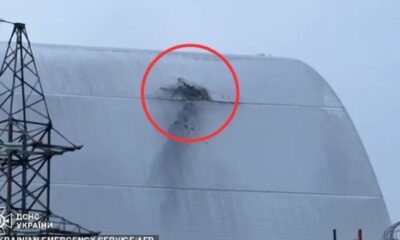
 Entertainment7 days ago
Entertainment7 days agoRadiation fears rise after cracks found in $2 billion Chernobyl shield






